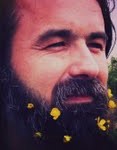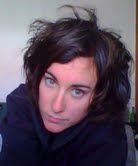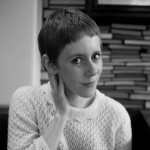Louise McKenna
Louise McKenna was born in the UK where she completed a joint honours degree in English Literature and French. Her first poetry collection was A Lesson in Being Mortal (Wakefield Press 2010). She is co-editor of Flying Kites, the Friendly Street Reader 36, (Wakefield Press 2012). Her work has appeared in Poetrix and Eureka Street. Her work also features in Light and Glorie, an anthology of South Australian poetry forthcoming from Pantaenus.
With a rush of water
he reels the fish in,
light glancing off
the tessellation of mirrors
on its wet piscine skin.
In a flash he glimpses his son
writhing in a shawl of amnion,
his wife begging for oxygen
in her river of blood.
He unhooks the fish’s pleading mouth,
spills it over the bank
where the current swallows it
like a bolus of grief.
Beneath the meniscus
of his breathing world
the barb still hangs,
trails the air.
A Walk in the Post Natal Woods
A thatch of branches and fir cones
drains the sky, sieves nuggets of light.
In this moth-silent twilight
mushrooms flourish,
feeding on shadow.
Or blackberries,
sticky as blood clots.
I must carry my baby
from this bed of stone
with its lichen and moss,
its graveyard patinas.
Something malevolent
waits deep in the bole
of that tree.
I’ve heard these woods
are full of bears and witches.
I’m an easy target—
Gretel without Hansel
looking for exits
that appear and vanish
like holograms I tell the midwife.
In her eyes I see her shaking her head.
“With A Rush of Water“, was published in the Friendly Street anthology








